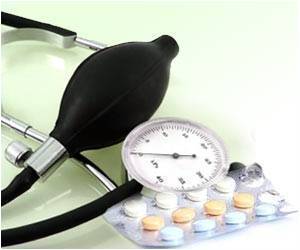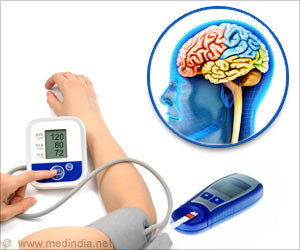Highlights
- Women who develop high blood pressure in their mid-life or 40s were at an increased risk of developing dementia later in life
- Women who develop high blood pressure in their 30s were not at the risk of developing dementia
- Compared to men, women were at higher risk of developing high blood pressure and dementia
About 7,238 people were involved in the study who were part of the Kaiser Permanente Northern California health care system.
Blood pressure levels of all the participants have been tested from 1964 to 1973. The participants were first tested when they were 33 years old and later when they were 44 years old.
In this study, about 22 percent of the participants were found to have high blood pressure in their 30s (31 percent of men and 14 percent of women).
Overall, about 22 percent of the participants who were in their 40s were found to have had high blood pressure (25 percent of men and 18 percent of women).
Next, the research team had identified 5,646 participants who were still alive and were part of the Kaiser Permanente system in 1996.
Participants who were in their 30s and had high blood pressure were not associated with an increased risk of dementia.
However, participants who were in their 40s or mid-adulthood were found to have a 65 percent increased risk of developing dementia in women.
High Blood Pressure and Dementia in Women
Women who were in their 30s and 40s and developed high blood pressure are likely to develop dementia when compared to those who had stable and normal blood pressure levels throughout their 30s and 40s.
The results were found to be same when adjusted for other factors that could affect the risk of dementia like body mass index, diabetes, and smoking.
Normally, high blood pressure was more common in men than women; the research team found no evidence of them developing high blood pressure or even developing dementia risk in their 30s or 40s, stated Whitmer.
Whitmer also stated, "More research is needed to identify the possible sex-specific pathways through which the elevated blood pressure accelerates brain aging."
For women who did not develop dementia even at age 60, the cumulative 25-year risk of dementia in those who developed high blood pressure in their 30s was 21 percent when compared with those 18 percent women who had normal blood pressure.
The limitation of this study was that there were many developments made from the time the research has begun in screening participants for high blood pressure and also the effectiveness of using the drugs, limiting the ability to generalize the results to today's population.
What is High Blood Pressure?
Hypertension or High blood pressure is a chronic condition and once developed lasts for a lifetime. Hypertension is a ‘silent killer disease, ’ and it often presents without any signs and symptoms.
Hypertension is defined as the force of blood against the walls of the arteries when the heart pumps blood throughout the body. Every time the heart beats, it pumps the blood into the arteries.
Blood pressure levels are measured in millimeters of mercury (mmHg). A sphygmomanometer is a device used to measure the blood pressure.
The standard recommended blood pressure is 120/80 mmHg. If the blood pressure measurement is in the range of 120/80 mmHg and 140/90 mmHg; and is termed as ‘pre-hypertension.' If hypertension is left untreated, it can lead to heart disease risk, stroke, kidney failure and eye damage.
Source-Medindia
















